In the field of logistics, the choice of pallets can be critical, affecting the efficiency and safety of transportation. In this article, we will explore four main types of pallets and their application in logistics. From standardized European and Finnish pallet versions to non-standard and industrial custom pallet designs, we will learn how each of them can address various logistics challenges and improve freight transportation efficiency.
European PALLET – EPAL
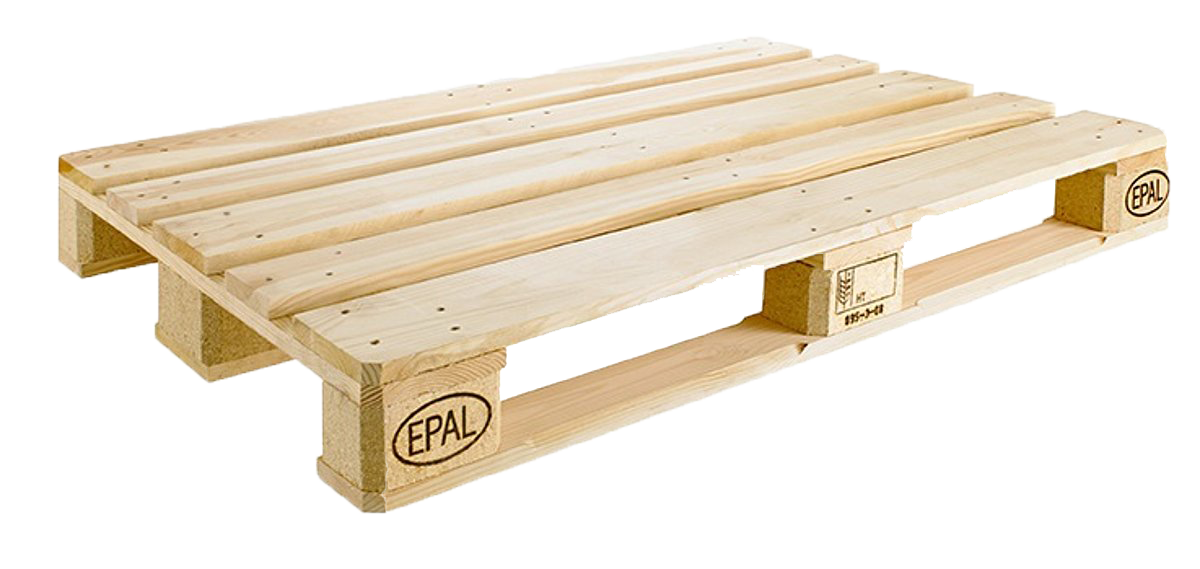
Length: 800 mm
Width: 1,200 mm
Height: 144 mm
Safe Working Load: 1,500 kg
Finnish PALLET – EPAL 2
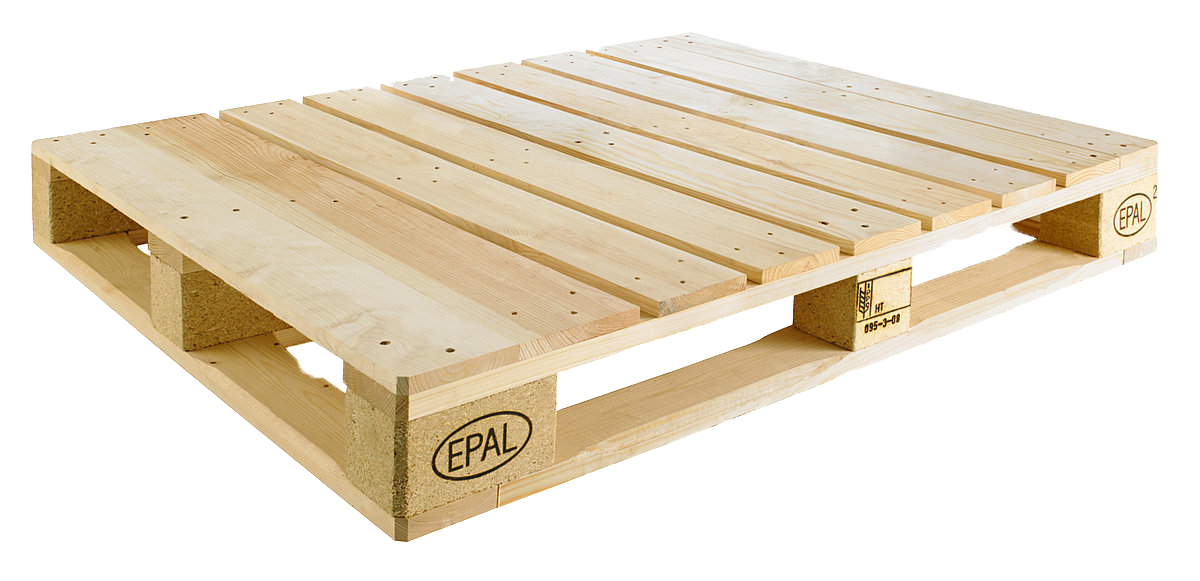
Length: 1,200 mm
Width: 1,000 mm
Height: 162 mm
Safe Working Load: 1,250 kg
PALLET – EPAL 3
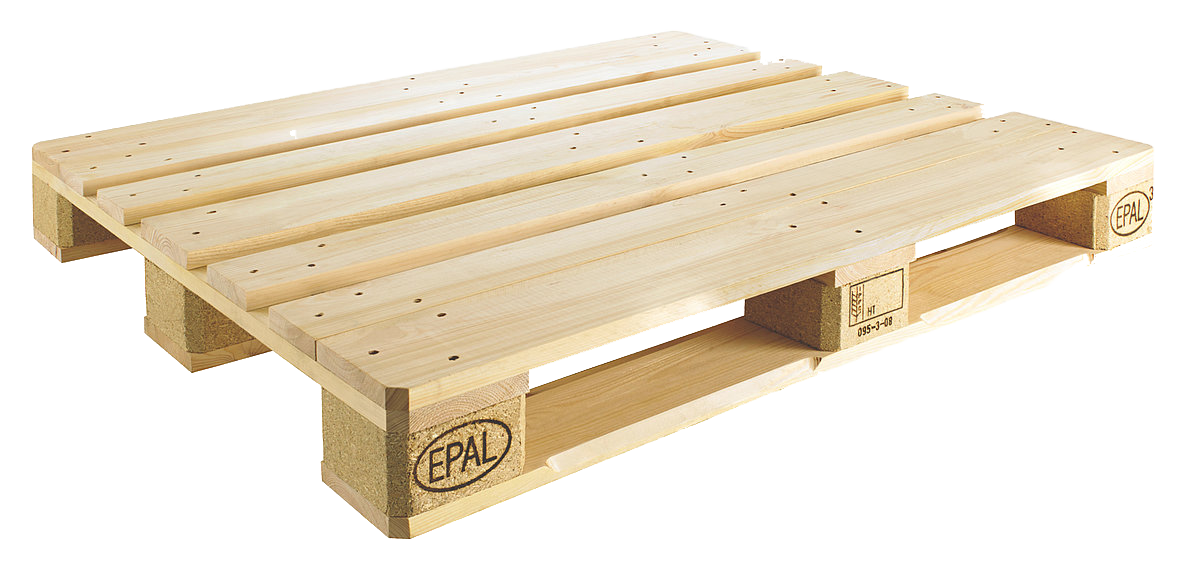
Length: 1,000 mm
Width: 1,200 mm
Height: 144 mm
Safe Working Load: 1,500 kg
HALF PALLET – EPAL 6
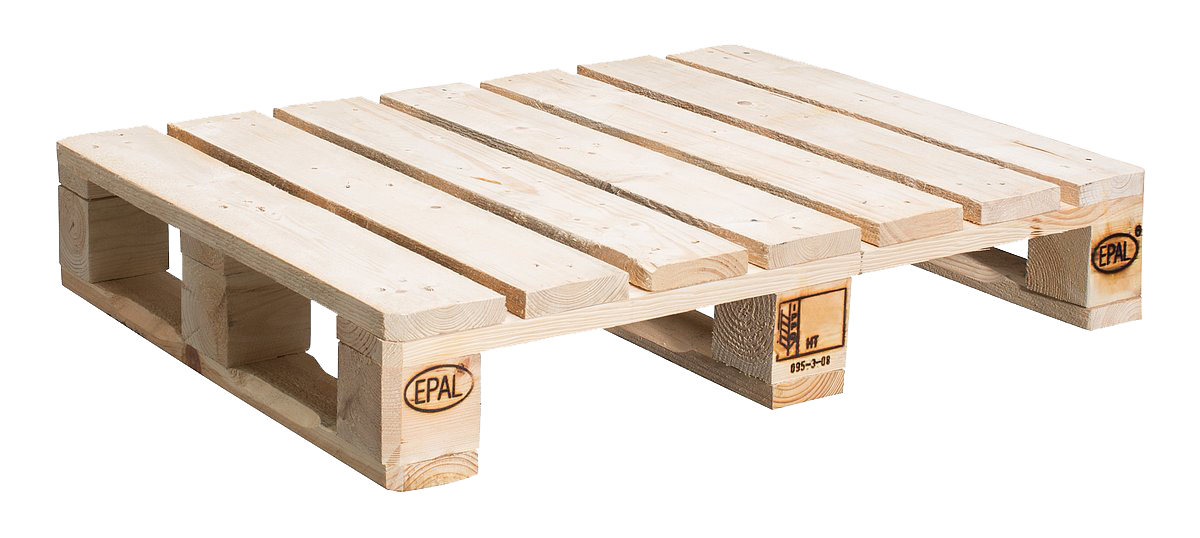
Length: 800 mm
Width: 600 mm
Height: 144 mm
Safe Working Load: 500 kg
HALF PALLET – EPAL 7
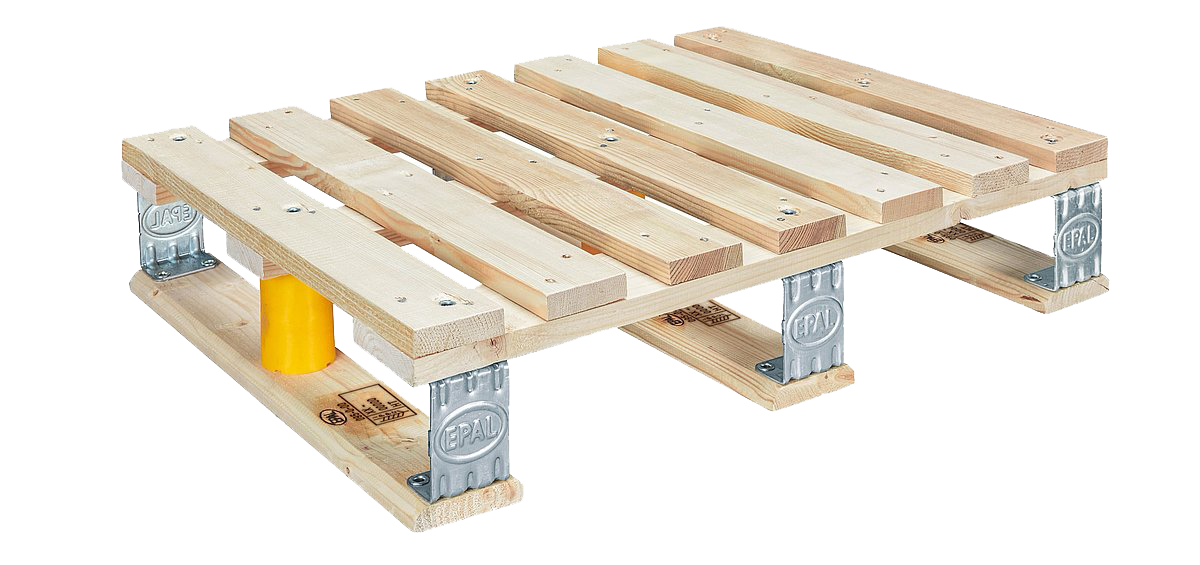
Length: 800 mm
Width: 600 mm
Height: 163 mm
Safe Working Load: 500 kg
BOX PALLET – EPAL BOX

Length: 800 mm
Width: 1200 mm
Height: 970 mm
Safe Working Load: 1,500 kg
PALETTE – EPAL CP1
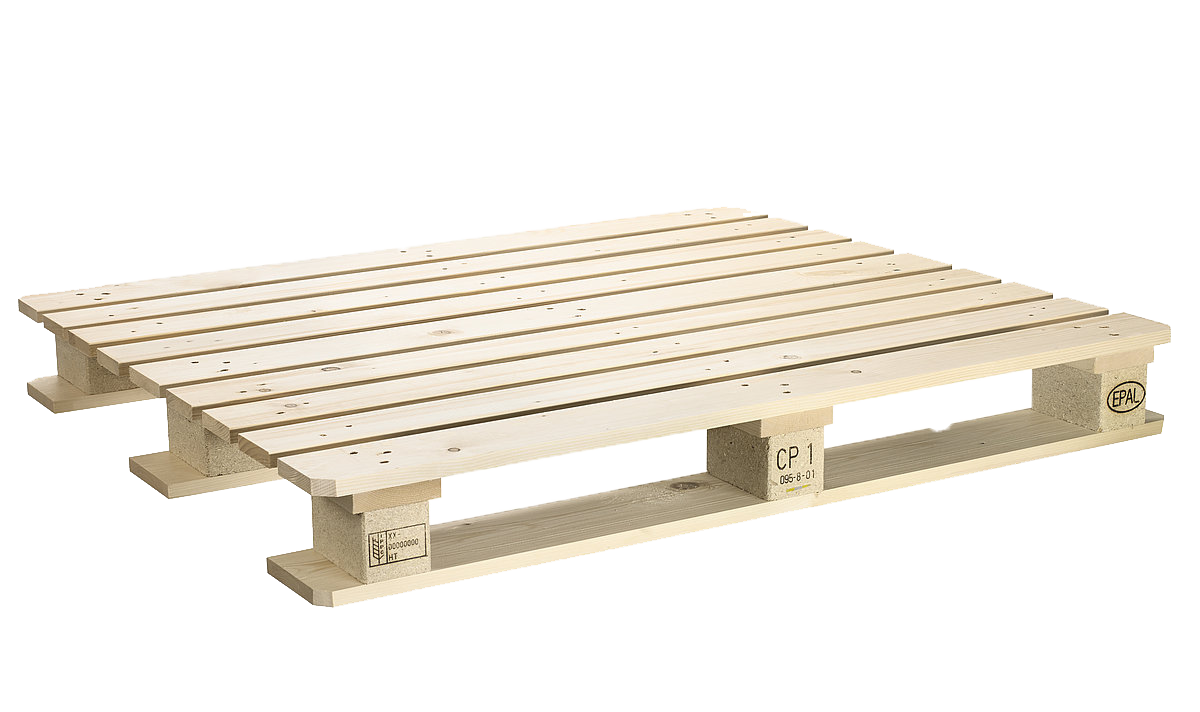
Length: 1000 mm
Width: 1200 mm
Height: 138 mm
PALETTE – EPAL CP2
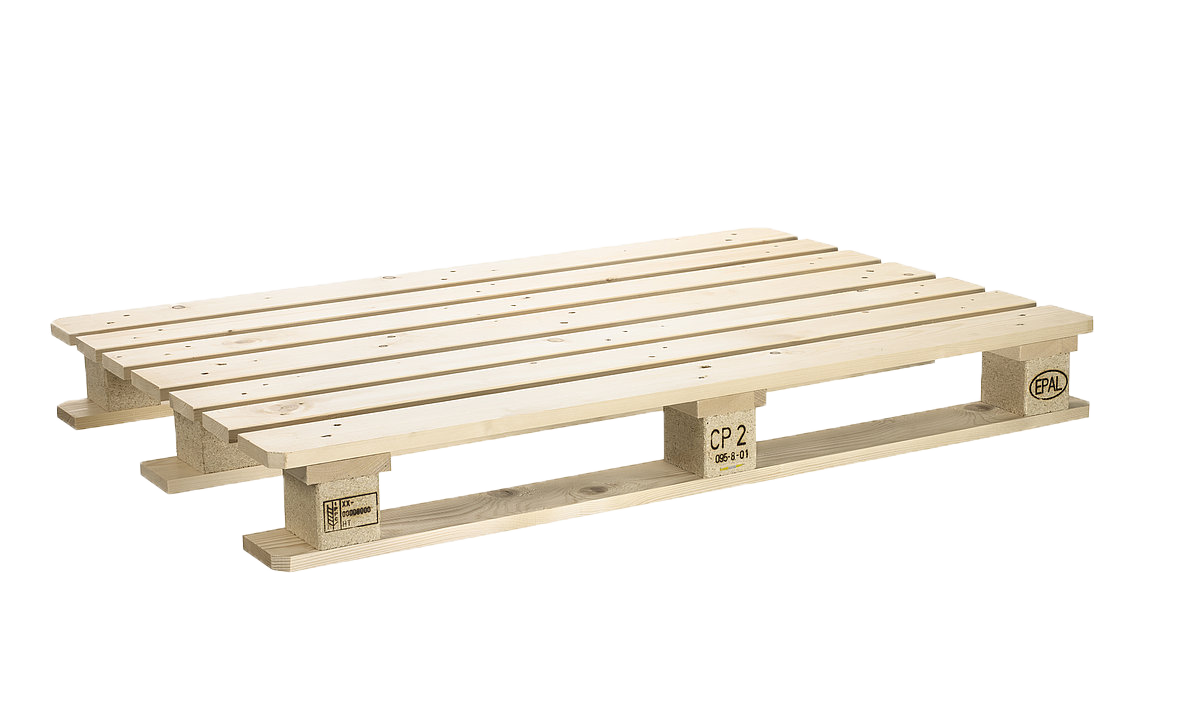
Length: 800 mm
Width: 1200 mm
Height: 138 mm
PALETTE – EPAL CP3
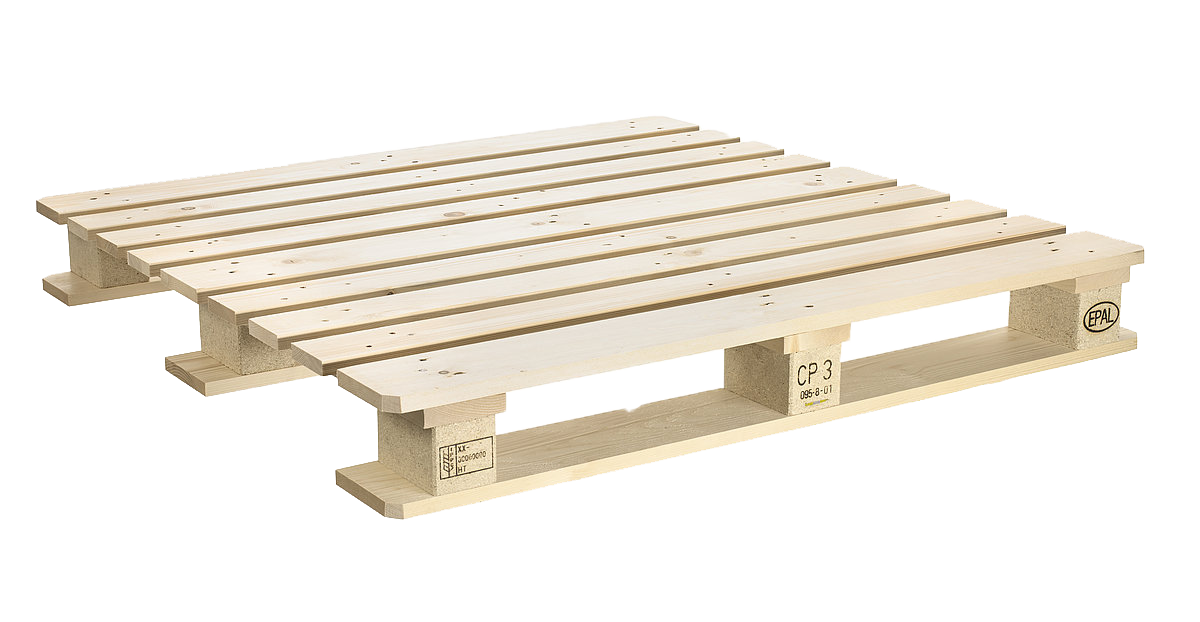
Length: 1140 mm
Width: 1140 mm
Height: 138 mm
PALETTE – EPAL CP4
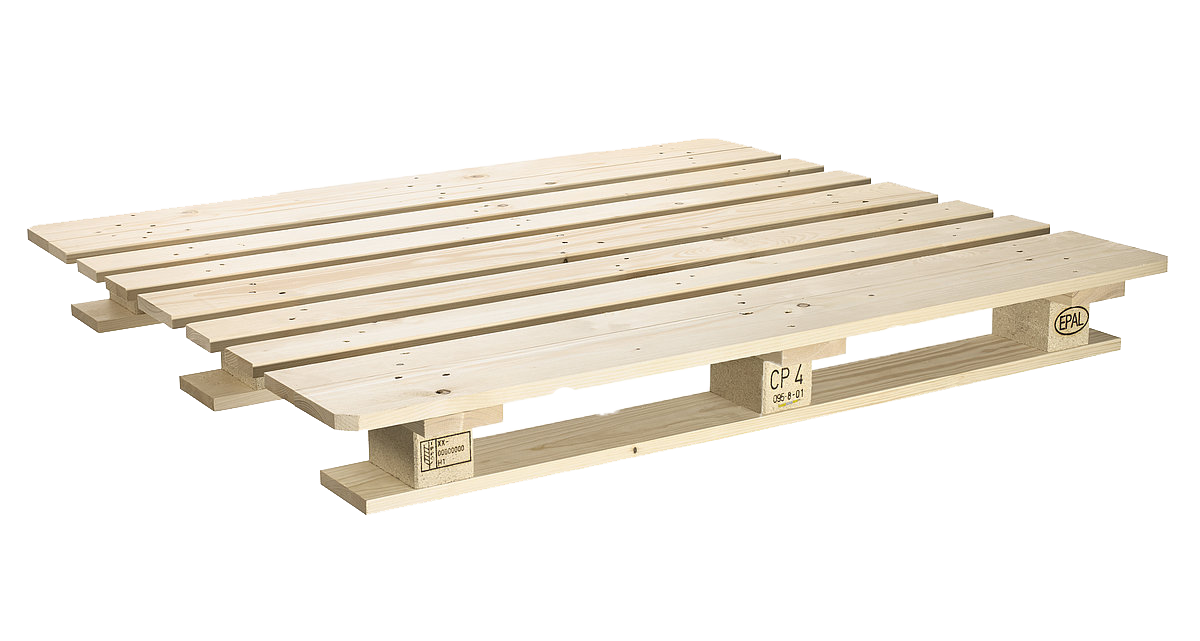
Length: 1100 mm
Width: 1300 mm
Height: 138 mm
PALETTE – EPAL CP5
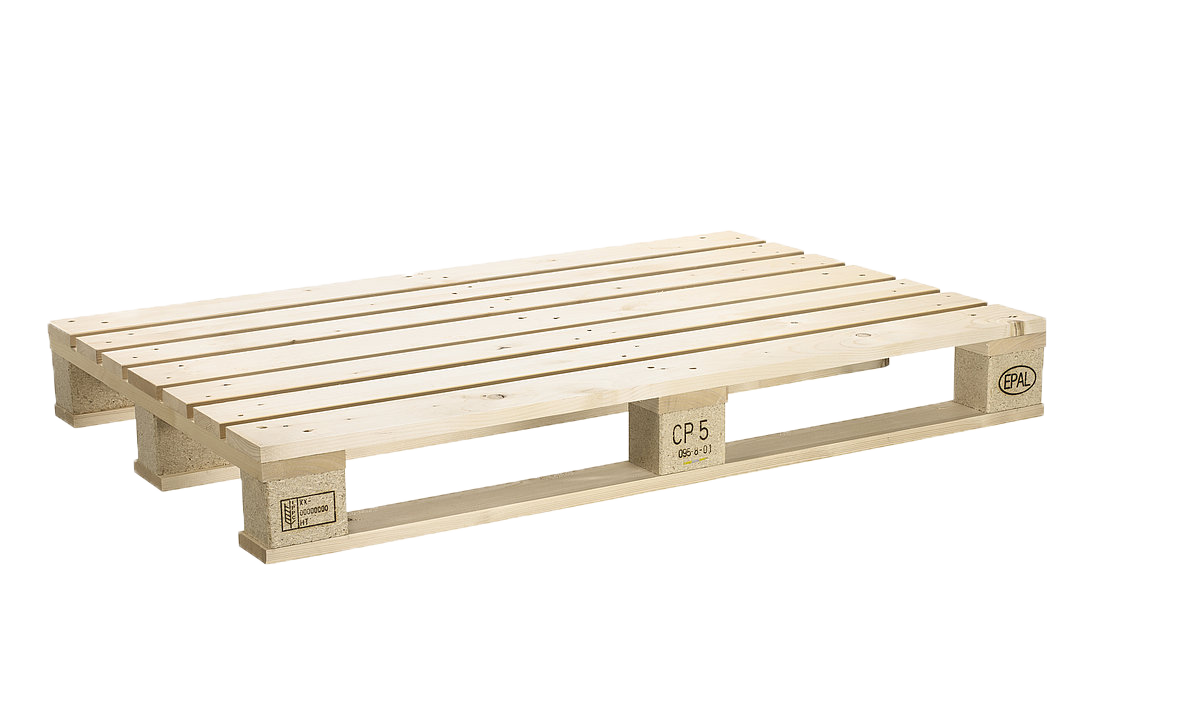
Length: 760 mm
Width: 1140 mm
Height: 138 mm
PALETTE – EPAL CP6
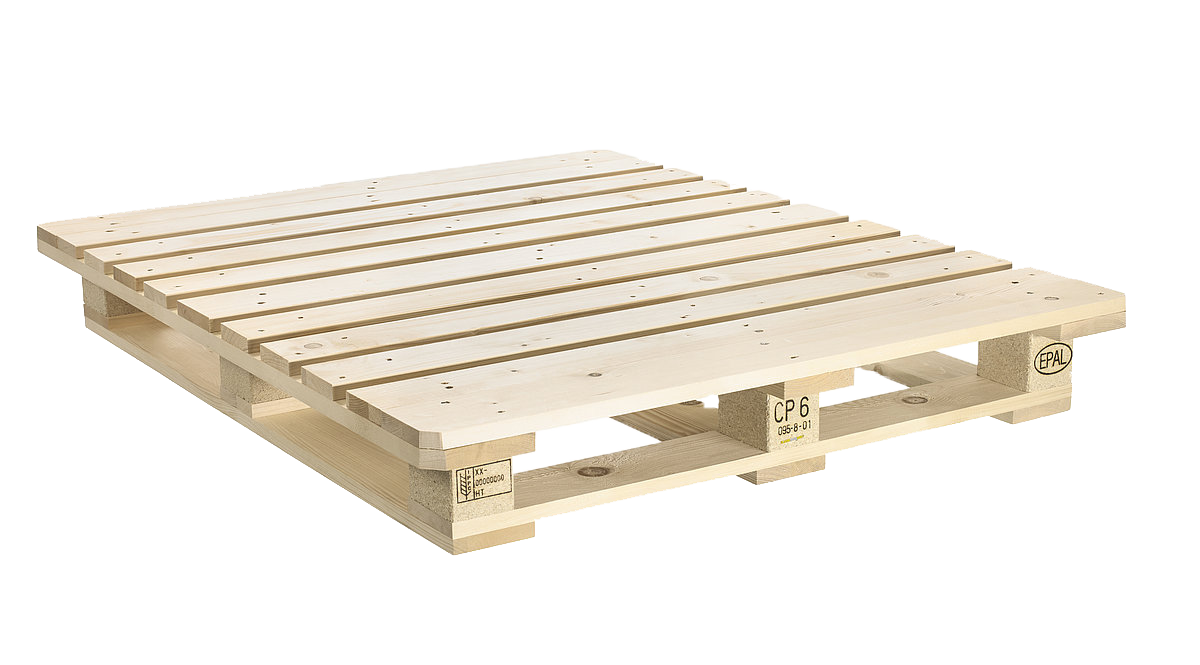
Length: 1200 mm
Width: 1000 mm
Height: 156 mm
PALETTE – EPAL CP7
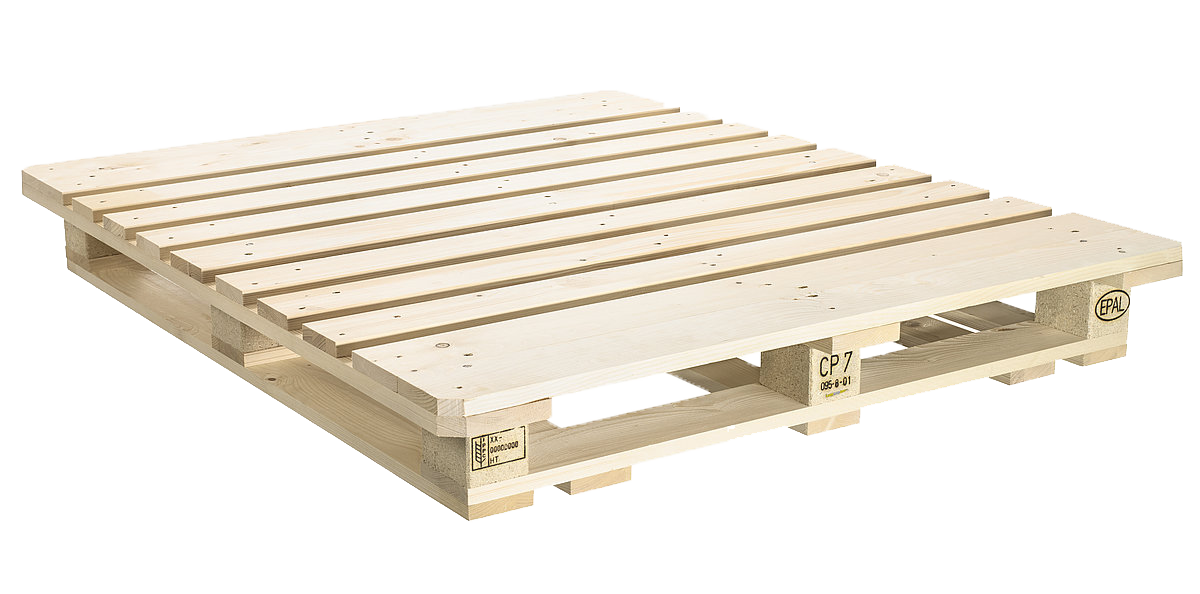
Length: 1300 mm
Width: 1100 mm
Height: 156 mm
PALETTE – EPAL CP8
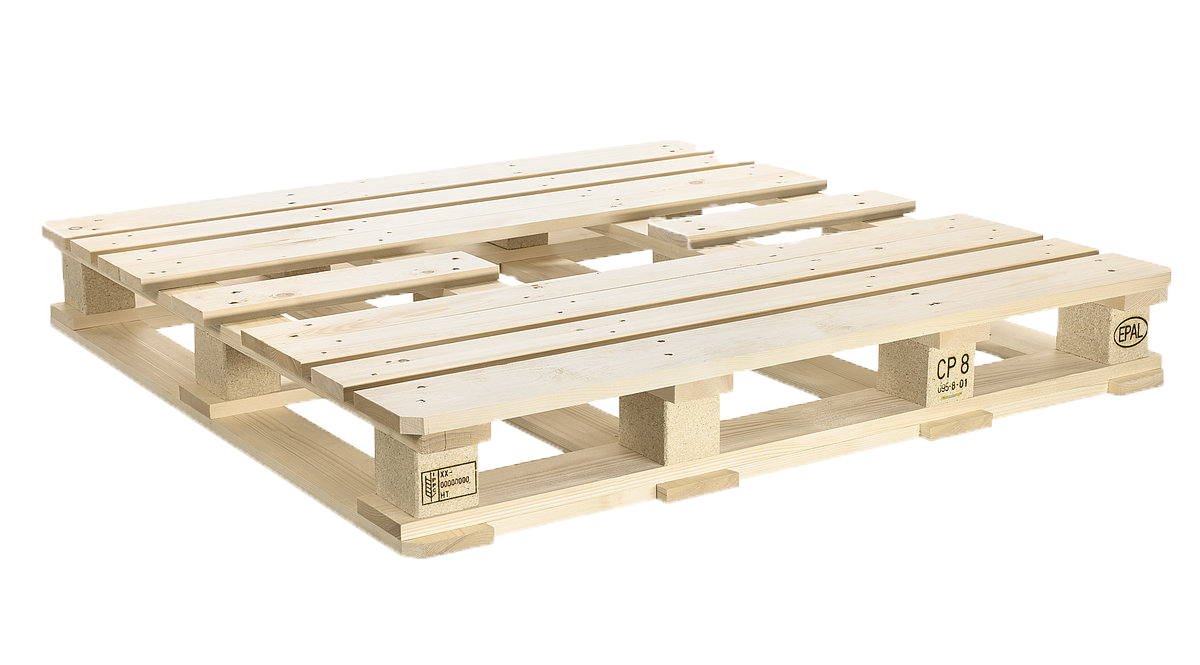
Length: 1140 mm
Width: 1140 mm
Height: 156 mm
PALETTE – EPAL CP9

Length: 1300 mm
Width: 1100 mm
Height: 156 mm
Each type of pallet is used depending on the specific circumstances, the nature of the goods and the logistical needs. These pallet standards help to optimise freight transport and ensure an efficient and secure logistics chain.

